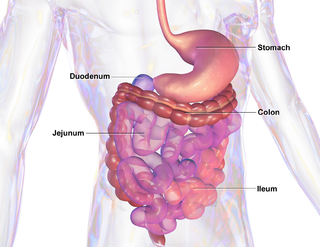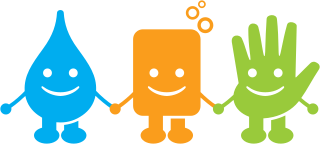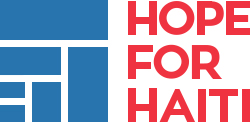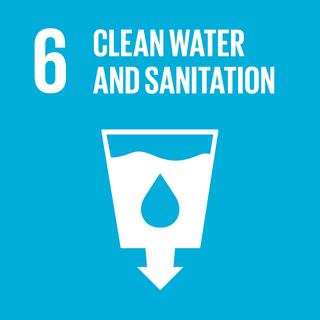
Hygiene is a set of practices performed to preserve health. According to the World Health Organization (WHO), "Hygiene refers to conditions and practices that help to maintain health and prevent the spread of diseases." Personal hygiene refers to maintaining the body's cleanliness. Hygiene activities can be grouped into the following: home and everyday hygiene, personal hygiene, medical hygiene, sleep hygiene, and food hygiene. Home and every day hygiene includes hand washing, respiratory hygiene, food hygiene at home, hygiene in the kitchen, hygiene in the bathroom, laundry hygiene, and medical hygiene at home.

Sanitation refers to public health conditions related to clean drinking water and treatment and disposal of human excreta and sewage. Preventing human contact with feces is part of sanitation, as is hand washing with soap. Sanitation systems aim to protect human health by providing a clean environment that will stop the transmission of disease, especially through the fecal–oral route. For example, diarrhea, a main cause of malnutrition and stunted growth in children, can be reduced through adequate sanitation. There are many other diseases which are easily transmitted in communities that have low levels of sanitation, such as ascariasis, cholera, hepatitis, polio, schistosomiasis, and trachoma, to name just a few.

Drinking water or potable water is water that is safe for ingestion, either when drunk directly in liquid form or consumed indirectly through food preparation. It is often supplied through taps in which case it is also called tap water. Typically in developed countries, tap water meets drinking water quality standards, even though only a small proportion is actually consumed or used in food preparation. Other typical uses for tap water include washing, toilets, and irrigation. Greywater may also be used for toilets or irrigation. Its use for irrigation however may be associated with risks.

An intestinal parasite infection is a condition in which a parasite infects the gastro-intestinal tract of humans and other animals. Such parasites can live anywhere in the body, but most prefer the intestinal wall.

Hand washing, also known as hand hygiene, is the act of cleaning one's hands with soap or handwash and water to remove viruses/bacteria/microorganisms, dirt, grease, or other harmful and unwanted substances stuck to the hands. Drying of the washed hands is part of the process as wet and moist hands are more easily recontaminated. If soap and water are unavailable, hand sanitizer that is at least 60% (v/v) alcohol in water can be used as long as hands are not visibly excessively dirty or greasy. Hand hygiene is central to preventing the spread of infectious diseases in home and everyday life settings.
Infection prevention and control is the discipline concerned with preventing healthcare-associated infections; a practical rather than academic sub-discipline of epidemiology. In Northern Europe, infection prevention and control is expanded from healthcare into a component in public health, known as "infection protection". It is an essential part of the infrastructure of health care. Infection control and hospital epidemiology are akin to public health practice, practiced within the confines of a particular health-care delivery system rather than directed at society as a whole.

Neglected tropical diseases (NTDs) are a diverse group of tropical infections that are common in low-income populations in developing regions of Africa, Asia, and the Americas. They are caused by a variety of pathogens, such as viruses, bacteria, protozoa, and parasitic worms (helminths). These diseases are contrasted with the "big three" infectious diseases, which generally receive greater treatment and research funding. In sub-Saharan Africa, the effect of neglected tropical diseases as a group is comparable to that of malaria and tuberculosis. NTD co-infection can also make HIV/AIDS and tuberculosis more deadly.

iDE, formerly International Development Enterprises, is an international nonprofit organization that promotes a business approach to increasing income and creating livelihood opportunities for poor rural households. iDE was founded in 1982 by Paul Polak, a Denver, Colorado psychiatrist who promoted the concept of helping poor people become entrepreneurs instead of simply giving them handouts. Originally, iDE was devoted to the manufacture, marketing, and distribution of affordable, scalable micro-irrigation and low-cost water recovery systems throughout the developing world. iDE facilitates local manufacture and distribution of these products through local supply chains that sell to farmers at an affordable price which they can repay in one growing season. This strategy allows farmers to grow higher value and surplus crops, and in turn links them to high-value crop markets where they can realize profits from their higher yields. Recently, their success is in the promotion of sanitation products to decrease the practice of open defecation leading to diarrheal disease.
The Bremen Overseas Research and Development Association (BORDA) is a non-profit international development organization headquartered in Bremen, Germany, and regional offices in Afghanistan, India, Indonesia, Mexico, and Tanzania as well as several project offices within each region. BORDA began its work in 1977, starting with its first project, “Technology Transfer of Biogas India-Ethiopia.” Since then it has been active in the delivery of basic needs services across the developing world.

Lifewater International is a non-profit Christian water development organization serving the world's rural poor through integrated water, sanitation, and hygiene programs. In 40 years, Lifewater has served 2.5 million people in 40 countries.

Dental Public Health (DPH) is a para-clinical specialty of dentistry that deals with the prevention of oral disease and promotion of oral health. Dental public health is involved in the assessment of key dental health needs and coming up with effective solutions to improve the dental health of populations rather than individuals.

Global Hand washing Day (GHD) is an international hand washing promotion campaign to motivate and mobilize people around the world to improve their hand washing habits. Washing hands at critical points both during the day and washing with soap are important. In 2008, Global Handwashing Day was celebrated for the first time. This day aims to make people around the world aware of the importance of washing their hands with soap in order to prevent diseases and infections. To commemorate this special day, over 120 million children in 70 countries were encouraged to practice handwashing with soap. Since then, the movement has built momentum, garnering support from various stakeholders such as governments, schools, NGOs, and private firms.

Hope for Haiti is a non-profit organization based in Naples, Florida, USA, founded in 1989 by JoAnne Kuehner. The mission of the organization is to improve the quality of life for the Haitian people, particularly children, through education, healthcare, water, infrastructure and economy. In addition, Hope for Haiti has an emergency relief component and has responded to several natural disasters like the 2010 Haiti Earthquake and Hurricane Matthew since its founding.
Humanitarian Initiative Just Relief Aid (HIJRA) is an African humanitarian organization focused on the implementation of emergency and resilience programming in the greater Horn of Africa; Somalia, Kenya and Uganda.

WASH is an acronym that stands for "water, sanitation and hygiene". It is used widely by non-governmental organizations and aid agencies in developing countries. The purposes of providing access to WASH services include achieving public health gains, improving human dignity in the case of sanitation, implementing the human right to water and sanitation, reducing the burden of collecting drinking water for women, reducing risks of violence against women, improving education and health outcomes at schools and health facilities, and reducing water pollution. Access to WASH services is also an important component of water security. Universal, affordable and sustainable access to WASH is a key issue within international development and is the focus of the first two targets of Sustainable Development Goal 6. Targets 6.1 and 6.2 aim at equitable and accessible water and sanitation for all. In 2017, it was estimated that 2.3 billion people live without basic sanitation facilities and 844 million people live without access to safe and clean drinking water.

School hygiene or school hygiene education is a healthcare science, a form of the wider school health education. The primary aims of school hygiene education is to improve behavior through useful practices connected to personal, water, food, domestic and public hygiene. Also, it aims to protect water and food supplies and to safely manage environmental factors.
The Water Supply and Sanitation Collaborative Council (WSSCC) was a United Nations-hosted organization contributing to Sustainable Development Goal 6, Target 6.2 on sanitation and hygiene. It was established in 1990 and closed at the end of 2020. WSSCC advocated for improved sanitation and hygiene, with a focus on the needs of women, girls and people in vulnerable situations.

The Catholic Medical Mission Board (CMMB) is an international, faith-based NGO, providing long-term, co-operative medical and development aid to communities affected by poverty and healthcare issues. It was established in 1912 and officially registered in 1928. CMMB is headquartered in New York City, USA, and currently has country offices in Haiti, Kenya, Peru, South Sudan, and Zambia.

Sustainable Development Goal 6 is about "clean water and sanitation for all". It is one of the 17 Sustainable Development Goals established by the United Nations General Assembly in 2015. According to the United Nations, the goal is to: "Ensure availability and sustainable management of water and sanitation for all." The goal has eight targets to be achieved by 2030. Progress toward the targets will be measured by using eleven indicators.















